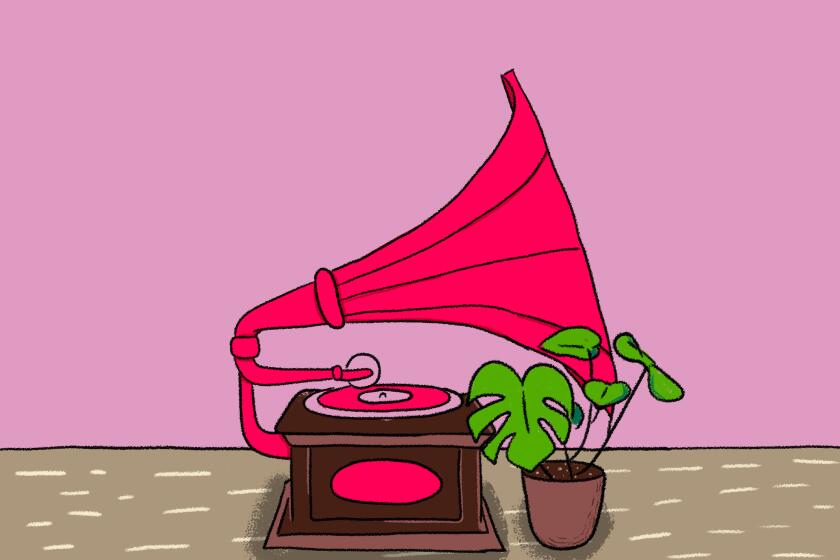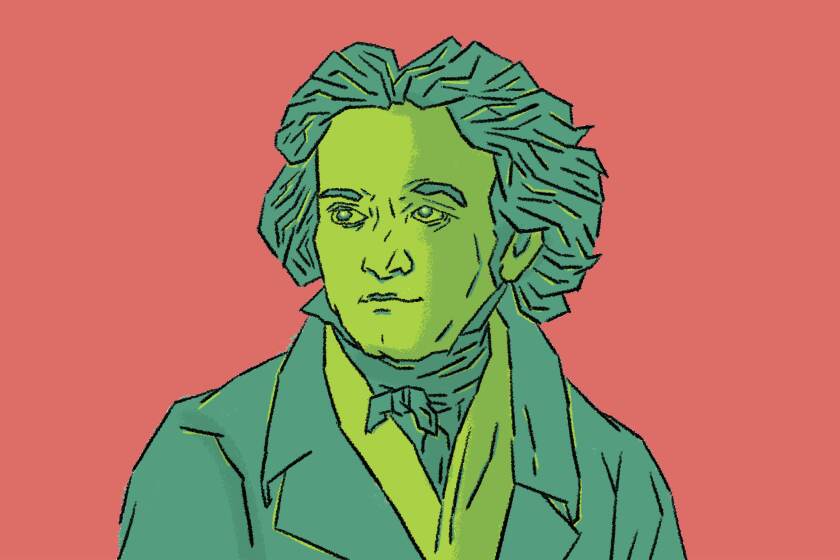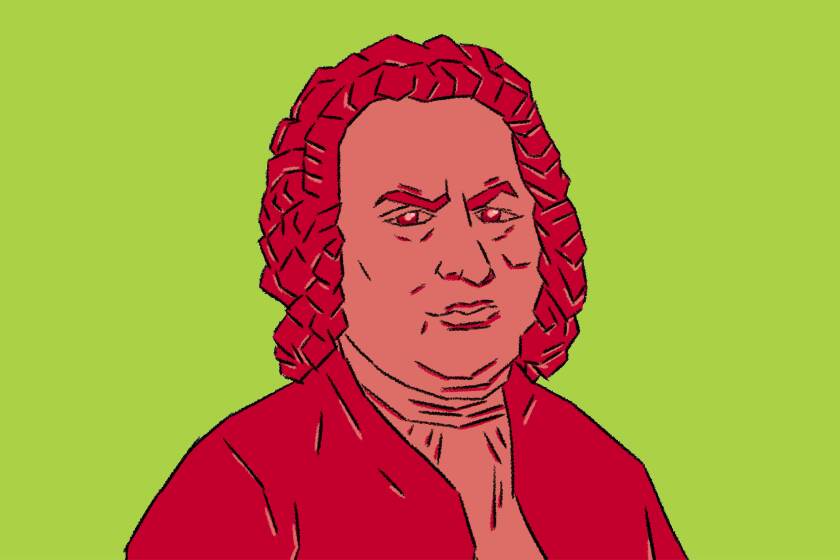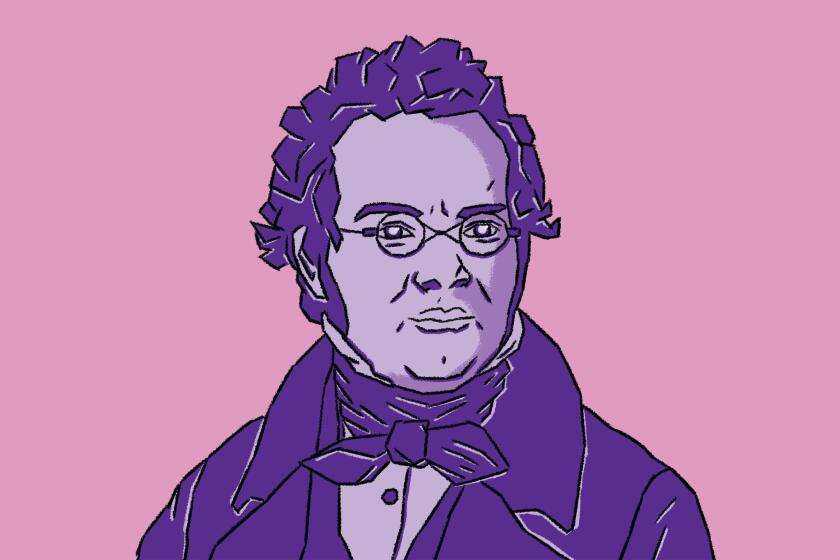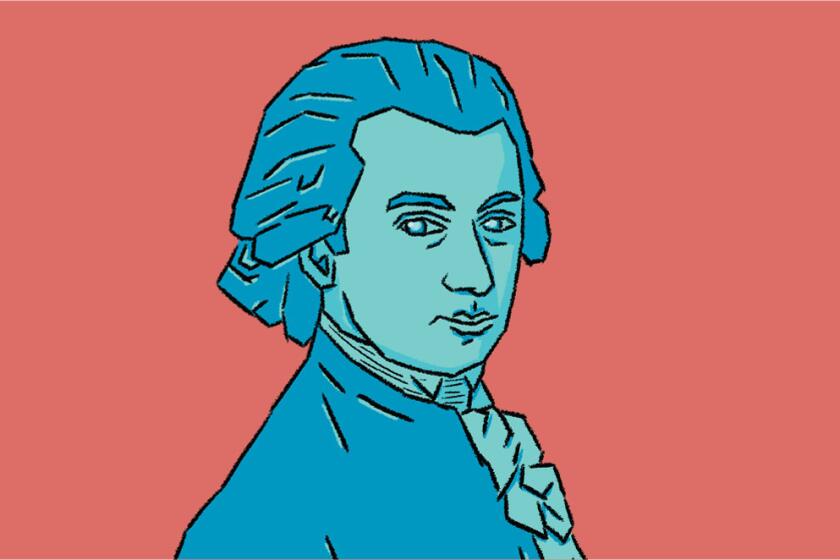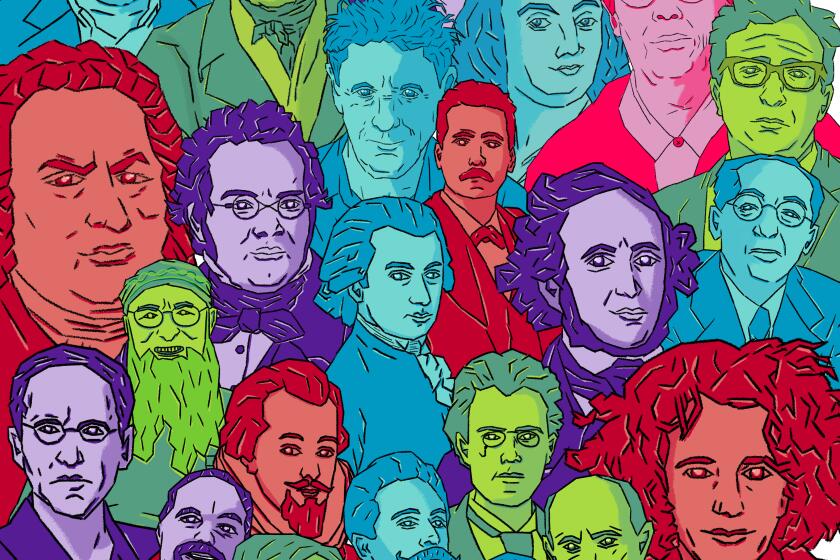Indispensable classical music for newbies and aficionados alike
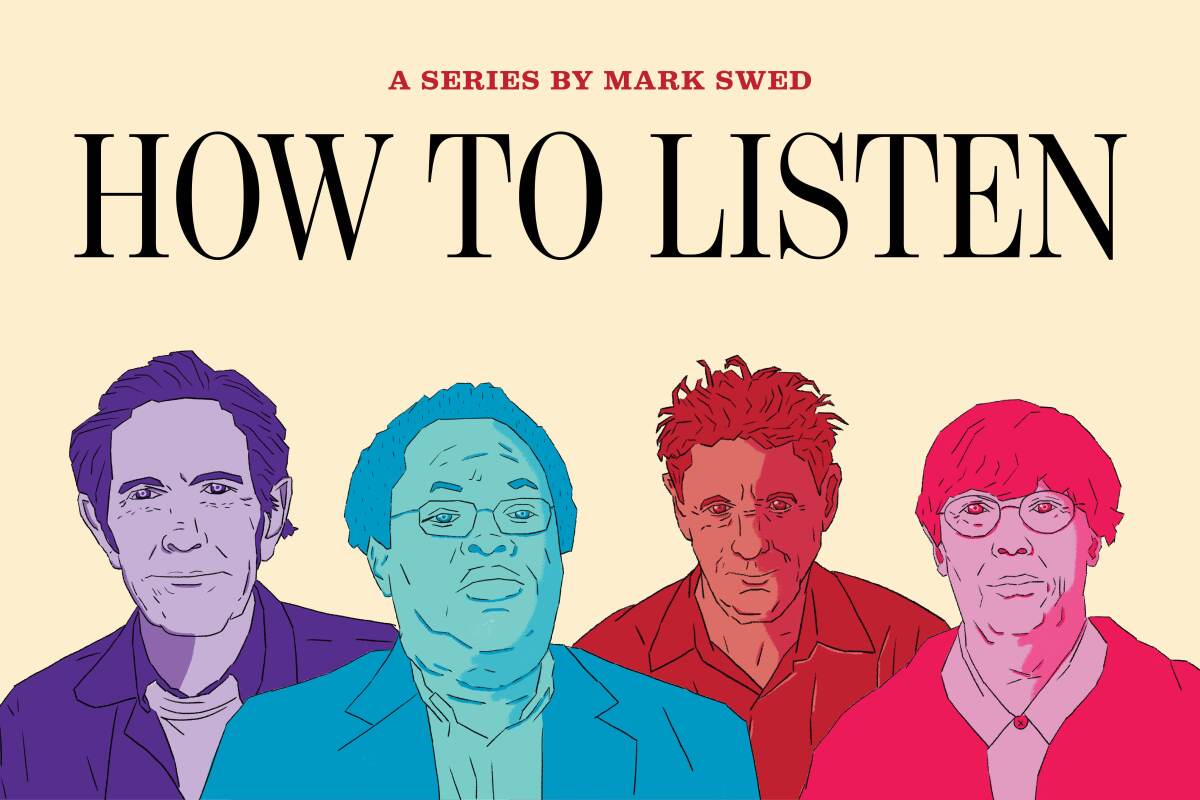
Coronavirus may have silenced our symphony halls, taking away the essential communal experience of the concert as we know it, but The Times invites you to join us on a different kind of shared journey: a new series on listening.
Ecstasy and excess. Rhythm and repetition. Lyricism, protest, healing. Join us as we explore all of that and more through a different piece of music by a different composer each week.
Look for new installments every Wednesday at latimes.com/arts, and please consider a digital subscription that supports our ongoing coverage of the arts.
- 1
Ecstasy and excess, rhythm and repetition, gender and ethnicity. Lyricism, protest, healing. Critic Mark Swed’s series on the ideas embedded in every note.
- 2
Beethoven’s A-minor String Quartet chronicles the composer’s illness and recovery. Nearly 200 years later, it’s a sonic window into our coronavirus world.
- 3
Our classical music series How to Listen continues with Guillaume de Machaut’s “Messe de Notre Dame,” a mysterious beauty we can’t get out of our heads.
- 4
Our “How to Listen” series takes on Rzewski’s “The People United Will Never Be Defeated!” How variations on a Chilean protest song form a modern classic.
- 5
Our listening series continues with the Bach cantata “Ich habe genug,” which counters death with a blessed sense of assurance. Surely that’s a useful example now.
- 6
Premiered six months after the murder of Martin Luther King Jr., Berio’s “Sinfonia” offers a luminous tribute full of meaning for us today.
- 7
Pauline Oliveros was one of the most radical composers of her time. Listen to her “The Well & The Gentle” and be changed by the experience.
- 8
Our “How to Listen” series continues with Aaron Copland’s “Appalachian Spring.” How music written off as a relic still resonates powerfully with hope.
- 9
Our “How to Listen” series celebrates to George Lewis, a vital force expressing the Black experience in music and exploring the power of improvisation.
- 10
Suffering syphilis’ last torments, Schubert bequeathed on an unsuspecting world a piano sonata of intemperate length and unvarnished lyricism
- 11
With cringe-worthy stereotypes and the trivialized aria “Nessun Dorma,” invoked recently by the White House, Puccini’s “Turandot” requires open ears.
- 12
As the politics of law and order are poised to determine the future of America, John Cage’s 1950 String Quartet in Four Parts stands as music of the moment.
- 13
Mozart’s Sinfonia Concertante, a lush dialogue expressing the pleasures of likeness and difference, doesn’t get performed nearly enough. Now’s the time to hear it.
- 14
How Toru Takemitsu’s 1967 “November Steps” called for Japanese instruments to be played with a Western orchestra, and East met West like never before.
- 15
Hear the pure, anything-is-possible optimism of a brilliant 16-year-old composer in Mendelssohn’s Octet, which seems made for this moment.
- 16
In Olga Neuwirth’s “Masaot/Clocks Without Hands,” the ultimate outsider symphonically tackles a nation’s hang-ups about homeland and patriarchy.
- 17
For your Halloween playlist: Scriabin’s spooky “Black Mass” piano sonata is a dance of death that ultimately stands for life.
- 18
When will be back to “normal”? Only when the biggest, most enraptured symphony, Mahler’s Eighth, can be performed in the concert hall.
- 19
Osvaldo Golijov’s song cycle “Ayre” has a remarkable, joyous intersection of Jewish, Christian and Muslim culture. Music achieves what politics cannot.
- 20
Tears flow in the 17th century “Lachrimae” by John Dowland, the composer whom Sting said can make hopelessness sound strangely uplifting.
- 21
The 1976 Philip Glass-Robert Wilson “Einstein on the Beach” changed how we think about opera, theater, time, the composer and even Einstein.
- 22
Arnold Schoenberg’s sacrilegious “Pierrot Lunaire” foretold a distortion of reality that has never left us.
- 23
Lou Harrison’s delectable Suite for Violin With American Gamelan fuses Indonesian percussion, Renaissance Italian dances and 1970s hippie spirit.
- 24
Brahms vs. Wagner has long been framed as conservative vs. progressive. Let’s ditch the labels and listen to the music, starting with this Piano Quintet.
- 25
Messiaen’s divine “Vingt Regards sur l’Enfant-Jesus” (“Twenty Gazes Upon the Child Jesus”) carries the spirit we need now, more than ever.
- 26
With “Sun Rings,” Terry Riley used NASA recordings from space to tap into our universal hopes — and push the string quartet into new territory.
- 27
The 25-part series in which great works of classical music tapped troubled times, in all its complexities, surprised even this critic about how great art endures.
